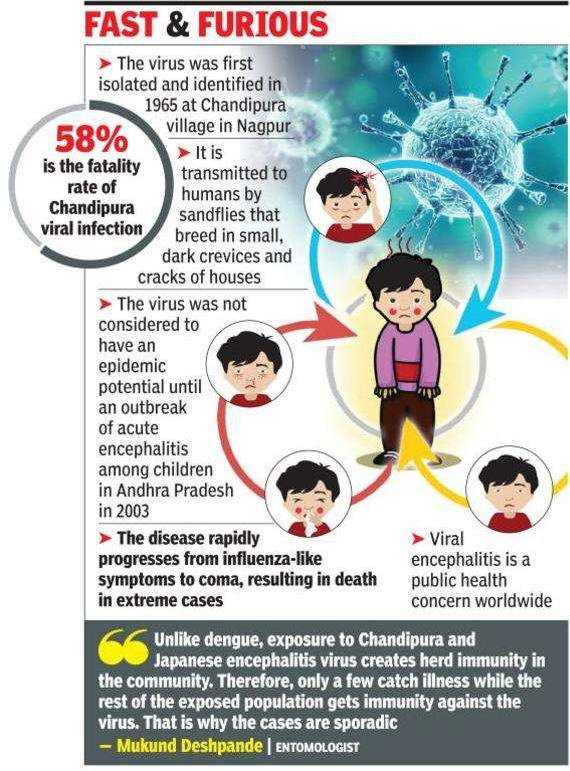Chandipura Virus Infection | 22 Jul 2024
Recently, many children have died of suspected Chandipura virus (CHPV) infection in Gujarat.
- CHPV Infection:
- The CHPV is an arbovirus that belongs to the Vesiculovirus genus in the Rhabdoviridae family.
- CHPV is transmitted by various species of sandflies, such as Phlebotomine sandflies, Phlebotomus papatasi and mosquitoes such as Aedes aegypti (vector for dengue).
- It primarily affects children under 15 years old.
- Complications and Symptoms :
- The virus resides in the salivary glands of these insects and is transmitted through their bites. CHPV can infect the central nervous system, potentially leading to encephalitis, an inflammation of the brain's active tissues.
- Symptoms resemble flu, including fever, body aches, and headache. It can cause altered mental state, seizures, encephalitis, respiratory distress, bleeding tendencies, and anaemia in advanced stages.
- Treatment:
- Currently, there is no specific antiviral treatment or vaccine for CHPV, so care is supportive and symptomatic.
- Epidemiology:
- CHPV was first identified in Chandipura village of Maharashtra in 1965 during a dengue outbreak.
- The infection remains endemic in central India, especially in rural and tribal areas with higher sandfly populations.
- Outbreaks are more frequent during the monsoon season due to increased breeding of sandflies.
Read More: Nipah Virus

